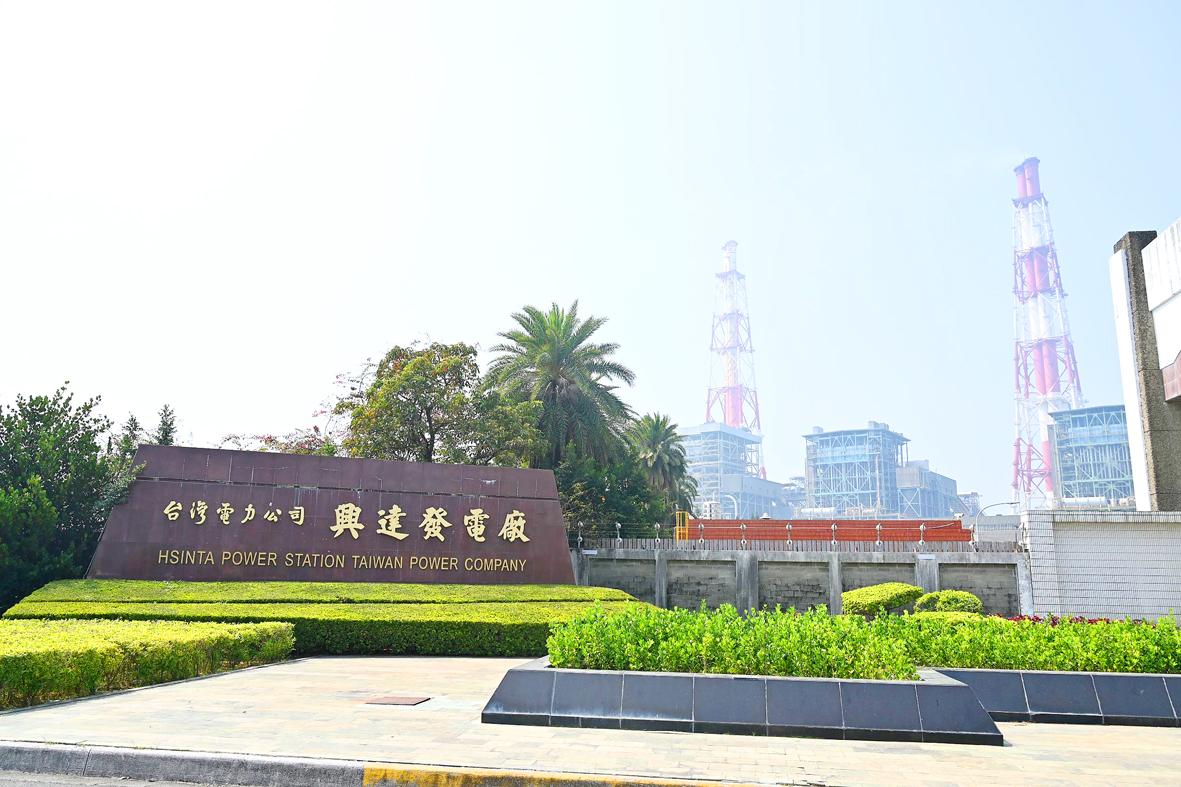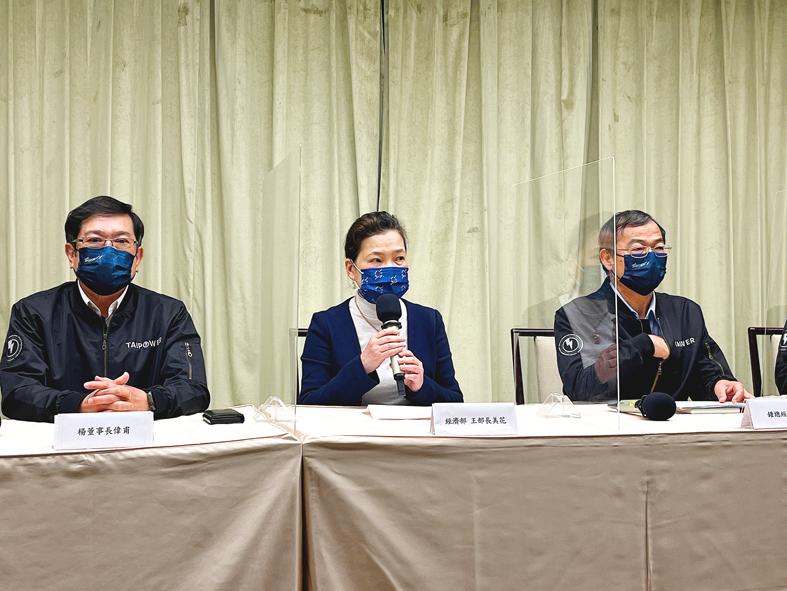About 5.49 million households yesterday lost power in one of the nation’s largest power disruptions since 2017 due to a switch malfunction at Kaohsiung’s Hsinta Power Plant (興達電廠), the Ministry of Economic Affairs said.
The incident sent the power plant offline, leading to a circuit malfunction at the Longqi Extra High Voltage Substation (龍崎超高壓變電所), which caused several power plants in the south to shut down.
About 10.5 million kilowatts was lost during the incident, Taiwan Power Co (Taipower, 台電) said.

Photo: Lee Hui-chou, Taipei Times
The Hsinta plant accounts for about 6 percent of the nation’s electricity production.
Taipower activated hydroelectric, liquefied natural gas and coal-fired power plants to fill the supply gap, it said.
Minister of Economic Affairs Wang Mei-hua (王美花) last night requested reprimands for the massive blackouts, as Taipower chairman Yang Wei-fuu (楊偉甫) and president Chung Bin-li (鍾炳利) offered their resignations, which are subject to the Cabinet’s approval.

Photo: CNA
Major science parks reported only minor effects from the blackouts. Taiwan Semiconductor Manufacturing Co (台積電), the world’s biggest contract chipmaker, said the incident had no significant impact on its production lines.
United Microelectronics Corp (聯電), the world’s No. 3 contract chipmaker, said the incident had brought production to a halt at its plant in the Tainan section of the Southern Taiwan Science Park (南部科學園區), but it was manageable.
LCD panel maker AU Optronics Corp (友達光電) said that some of its manufacturing facilities experienced a sudden voltage drop, but operations remained normal, while Innolux Corp (群創) said power went off at one of its plants, but that operations were recovering and it is evaluating the impact.
Power at the Kaohsiung section of the Southern Taiwan Science Park was fully restored by noon, the park’s administration said.
The ministry said that 48 industrial parks were affected by the blackout, and power had been restored to 36 of them as of yesterday afternoon.
Liu Chi-chuan (劉繼傳), operations management deputy director at the ministry’s Export Processing Zone Administration, said that 521 companies in industrial parks in the south were affected by the blackout, and power had been restored to 358 of them as of 1pm yesterday.
Executive Yuan spokesman Lo Ping-cheng (羅秉成) said that the government had asked the ministry and Taipower to thoroughly investigate the cause of the outage.
The government would reprimand those responsible if the large-scale blackout was proven to have been caused by human error, Lo quoted Premier Su Tseng-chang (蘇貞昌) as saying.
Wang said that human error was to blame for the blackout and that the ministry would complete its investigation in three days.
Additional reporting by CNA

NATIONAL SECURITY THREAT: An official said that Guan Guan’s comments had gone beyond the threshold of free speech, as she advocated for the destruction of the ROC China-born media influencer Guan Guan’s (關關) residency permit has been revoked for repeatedly posting pro-China content that threatens national security, the National Immigration Agency said yesterday. Guan Guan has said many controversial things in her videos posted to Douyin (抖音), including “the red flag will soon be painted all over Taiwan” and “Taiwan is an inseparable part of China,” while expressing hope for expedited “reunification.” The agency received multiple reports alleging that Guan Guan had advocated for armed reunification last year. After investigating, the agency last month issued a notice requiring her to appear and account for her actions. Guan Guan appeared as required,

Japan and the Philippines yesterday signed a defense pact that would allow the tax-free provision of ammunition, fuel, food and other necessities when their forces stage joint training to boost deterrence against China’s growing aggression in the region and to bolster their preparation for natural disasters. Japan has faced increasing political, trade and security tensions with China, which was angered by Japanese Prime Minister Sanae Takaichi’s remark that a Chinese attack on Taiwan would be a survival-threatening situation for Japan, triggering a military response. Japan and the Philippines have also had separate territorial conflicts with Beijing in the East and South China

A strong cold air mass is expected to arrive tonight, bringing a change in weather and a drop in temperature, the Central Weather Administration (CWA) said. The coldest time would be early on Thursday morning, with temperatures in some areas dipping as low as 8°C, it said. Daytime highs yesterday were 22°C to 24°C in northern and eastern Taiwan, and about 25°C to 28°C in the central and southern regions, it said. However, nighttime lows would dip to about 15°C to 16°C in central and northern Taiwan as well as the northeast, and 17°C to 19°C elsewhere, it said. Tropical Storm Nokaen, currently

PAPERS, PLEASE: The gang exploited the high value of the passports, selling them at inflated prices to Chinese buyers, who would treat them as ‘invisibility cloaks’ The Yilan District Court has handed four members of a syndicate prison terms ranging from one year and two months to two years and two months for their involvement in a scheme to purchase Taiwanese passports and resell them abroad at a massive markup. A Chinese human smuggling syndicate purchased Taiwanese passports through local criminal networks, exploiting the passports’ visa-free travel privileges to turn a profit of more than 20 times the original price, the court said. Such criminal organizations enable people to impersonate Taiwanese when entering and exiting Taiwan and other countries, undermining social order and the credibility of the nation’s